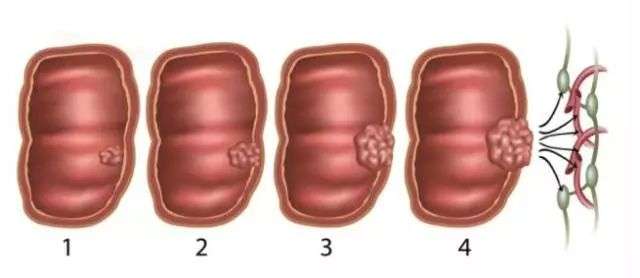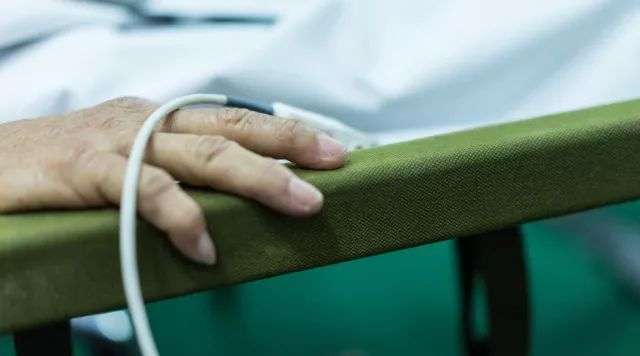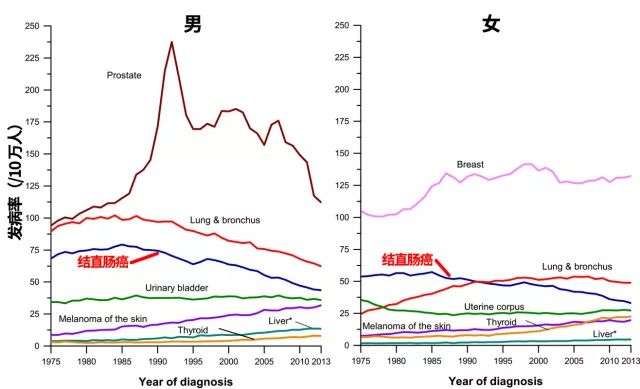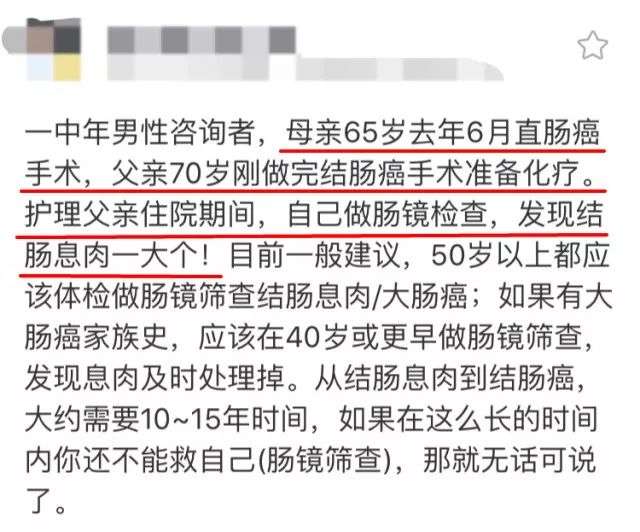Colorectal cancer, one of the five major cancers in China, is usually found in the middle and late stages.
Data show that the 5-year survival rate of patients with advanced colorectal cancer is only 12%. However, if it can be found at an early stage, the 5-year survival rate after treatment can reach 90%.
90% and 12%, the key lies in: early detection.
But early found, do an examination will know.
Colorectal cancer, in fact, can be found very early
Almost all colorectal cancers are developed from colorectal adenomas, and the whole canceration process often takes more than ten years.
Its development process is probably as follows:
- At the beginning, the tumor may only be an adenoma. After several years of development, adenoma has become cancerous and continues to grow. While continuing to grow, metastasis eventually occurred.

Fortunately, some methods can help doctors find cancer at an early stage, even before it becomes cancerous.
As long as abnormal tissues are found and removed, the occurrence and development of colorectal cancer can be effectively prevented.
Early detection not only costs less, but also has a higher survival rate. If we wait until the late stage to find out, it will not only be more dangerous, but also the cost of treatment will bring huge financial burden to the family.
The 5-year survival rate after treatment for early colorectal cancer is as high as 90%, while that for advanced colorectal cancer is only 12%.
Behind 90% and 12% are thousands of real families with different endings.

Colonoscopy, Found Colorectal Cancer Powerful Weapon
In China, the incidence of colorectal cancer is increasing year by year.
However, in the United States, the overall incidence rate of colorectal cancer has shown a downward trend for many consecutive years, from 56.0 (per 100,000 people) in 1998 to 36.5 (per 100,000 people) in 2015.
What’s more, the death rate of colorectal cancer in the United States has been declining since the 1980s.
In this regard, colorectal cancer screening plays an important role.

There are 7 common screening methods: colonoscopy, immunoassay for fecal occult blood, fecal guaiac test, sigmoidoscopy plus immunoassay for fecal occult blood, colon CT imaging (virtual colonoscopy), multi-target fecal DNA detection, and single sigmoidoscopy.
Among them, colonoscopy can help doctors directly observe the internal conditions of colorectum and minimize misdiagnosis and missed diagnosis.
Compared with the more and more extensive colorectal cancer screening in the United States, the domestic colorectal cancer screening is still in its infancy, especially colonoscopy, and the proportion is still very low.
Cancer screening means that when there are no symptoms, people who meet the screening criteria should be examined.
If you don’t screen in advance, but wait until you have symptoms before seeing a doctor, it may be too late.

For yourself and your family, go and have an colonoscopy.
At the age of 50, everyone should have colonoscopy, especially for high-risk groups.
Age is an important risk factor for colorectal cancer. With the increase of age, the incidence of colorectal cancer will gradually increase, and will increase significantly after 40 ~ 50 years old.
Therefore, it is generally recommended that people over 50 years old should undergo colonoscopy.
If it is a high-risk group, it should be done as soon as possible, for example:
- Someone in the family has colorectal cancer. There are hereditary diseases such as Lynch syndrome. There are inflammatory bowel diseases such as ulcerative colitis. The specific starting time of screening can be confirmed by communication with doctors.
Perhaps this examination can enable you to discover physical abnormalities as early as possible and stay away from the terrible colorectal cancer.

Don’t be afraid of colonoscopy
Some people do not do colonoscopy because they do not know. Some people do not do it because they are afraid that the examination will be too uncomfortable.
In fact, everyone need not be afraid.
Colonoscopy has discomfort, but it can be tolerated.
Everyone’s feeling and tolerance for pain are different. Colonoscopy does have discomfort such as distending pain or pulling, but most people can tolerate it and complete the examination smoothly.
Colonoscopy does not need to be done every year.
Generally speaking, if no abnormality is found in the first colonoscopy, the colonoscopy will be reviewed 10 years later. If abnormal conditions such as adenoma are found, they can be examined every 3-5 years. The specific examination frequency is in accordance with the doctor’s advice, but generally it is not necessary to do it every year.
It is a little uncomfortable to do it once every few years, but it is quite cost-effective to reassure yourself and your family.
You can choose painless colonoscopy
With the development of medicine, anesthesia technology can now be used to reduce the pain caused by examination. If you are really afraid of pain, you may as well discuss with your doctor and make an appointment for a painless colonoscopy.
In China, 380,000 people are diagnosed with colorectal cancer every year and 190,000 people die of it.
If screening can be done as early as possible, perhaps it will be a different outcome.
